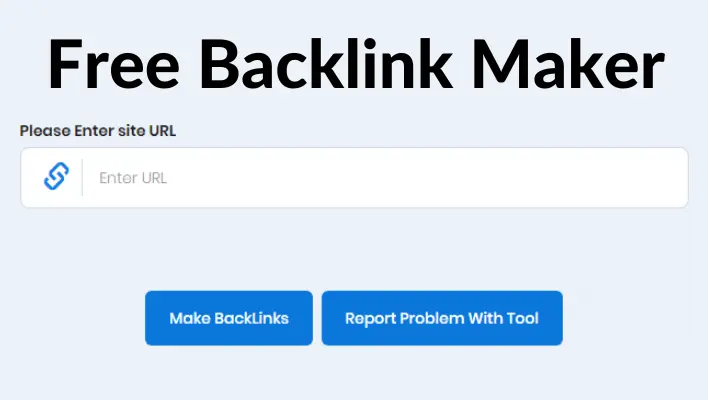Boosting Website Visibility with XML Sitemap Generators
In the ever-evolving landscape of digital marketing and website management, maintaining visibility to search engines stands as a cornerstone. At the heart of this endeavor lies the XML sitemap—a blueprint guiding search engine crawlers through the labyrinth of web content, ensuring no valuable page goes unnoticed. Yet, manual creation of XML sitemaps can be a Herculean task, particularly for sprawling websites with myriad pages and frequent updates. This is precisely where XML sitemap generators emerge as indispensable allies.
Contents
Understanding XML Sitemap Generators:
XML sitemap generators represent automated solutions tailored to streamline the arduous process of XML sitemap creation. These ingenious tools delve into the intricate structure of your website, meticulously scanning and compiling a comprehensive list of URLs earmarked for search engine indexing. By simplifying this process, they pave the way for search engine crawlers to efficiently traverse your web terrain, significantly enhancing your website’s visibility in search engine results.
How XML Sitemap Generators Operate:
XML sitemap generators operate on a premise of automation, sparing website administrators the laborious chore of manually cataloging URLs. Through systematic crawling, they traverse your website’s labyrinth, methodically mapping out URLs in a structured XML format compliant with leading search engines like Google, Bing, and Yahoo. This XML repository encapsulates vital metadata for each URL, including priority, last modification date, and update frequency, facilitating streamlined indexing.
Key Features of XML Sitemap Generators:
- Automatic Crawling: XML sitemap generators embark on automated crawls of your website, alleviating the burden of manual URL enumeration.
- Customization Options: Most XML sitemap generators boast robust customization functionalities, empowering users to prioritize specific pages, stipulate update frequencies, and exclude designated URLs from the sitemap.
- Dynamic Updates: In tandem with your website’s evolution, XML sitemap generators seamlessly synchronize with structural alterations, automatically updating sitemaps to ensure search engines possess the latest website information.
- Error Detection: These generators serve as vigilant sentinels, adept at detecting and flagging errors such as broken links or inaccessible pages, fortifying your website’s structural integrity.
- Multiple Formats Support: While XML stands as the quintessential sitemap format, select generators offer compatibility with alternative formats like HTML and TXT, catering to diverse search engine requirements.
Selecting the Ideal XML Sitemap Generator:
When embarking on the quest for the perfect XML sitemap generator, an array of factors warrants consideration:
- Ease of Use: Opt for a user-friendly interface facilitating seamless navigation and configuration of settings.
- Comprehensive Functionality: Ensure your chosen generator boasts the prowess to tackle expansive websites housing thousands of pages while furnishing detailed sitemaps.
- Platform Compatibility: Verify compatibility with various content management systems (CMS) and prevalent website development platforms to ensure seamless integration.
- Analytical Insights: Prioritize generators furnishing comprehensive reporting and analysis features, empowering you to monitor indexing status, pinpoint errors, and glean insightful crawl statistics.
- Scalability and Cost-Efficiency: Evaluate pricing plans and scalability options to secure a solution aligning with your budgetary constraints and anticipated growth trajectory.
The Importance of XML Sitemaps in SEO:
In the realm of Search Engine Optimization (SEO), XML sitemaps play a pivotal role in enhancing a website’s visibility and accessibility to search engine crawlers. By providing a structured roadmap of your website’s content, XML sitemaps ensure that search engines can effectively index all relevant pages, including those that may be buried deep within the site’s architecture. This comprehensive indexing improves the likelihood of your content appearing in search engine results pages (SERPs), driving organic traffic to your website.
Furthermore, XML sitemaps enable website owners to communicate important metadata about their pages to search engines. This metadata, including information such as page priority, update frequency, and last modification date, helps search engines understand the significance and freshness of each page. As a result, search engines can prioritize crawling and indexing efforts accordingly, leading to faster and more accurate updates in search results.
Best Practices for XML Sitemap Optimization:
While XML sitemaps offer tremendous benefits for SEO, optimizing them for maximum effectiveness is crucial. Here are some best practices to consider:
- Include all relevant URLs: Ensure that your XML sitemap includes all essential pages of your website, including primary content, blog posts, product pages, and any other significant sections.
- Prioritize important pages: Use the priority attribute in your XML sitemap to indicate the relative importance of different pages. This helps search engines understand which pages are most critical to your website’s overall structure and content.
- Update frequency: Specify how frequently each page on your website is updated using the changefreq attribute. This information helps search engines determine how often they should revisit and re-index each page.
- Submit to search engines: Once you’ve created and optimized your XML sitemap, submit it to major search engines like Google, Bing, and Yahoo through their respective webmaster tools. This ensures that search engines are aware of your sitemap and can use it to improve the indexing of your website.
- Regularly monitor and update: Keep track of your XML sitemap’s performance and regularly update it to reflect any changes or additions to your website. This ensures that search engines always have access to the most current information about your site’s content.
In Conclusion:
XML sitemaps represent indispensable assets in fortifying your website’s visibility and optimizing indexing by search engines. XML sitemap generators emerge as catalysts in this endeavor, streamlining the process of sitemap creation and updates while saving invaluable time and effort for website custodians. By harnessing their arsenal of features—ranging from automated crawling and customization to dynamic updates and error detection—you can propel your website to greater SEO prowess, attracting a deluge of organic traffic. Embrace XML sitemap generators today and embark on a journey to elevate your website’s visibility amidst the competitive digital expanse.



















